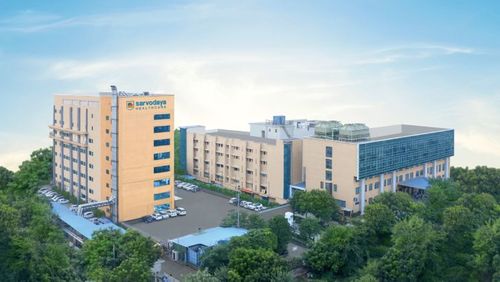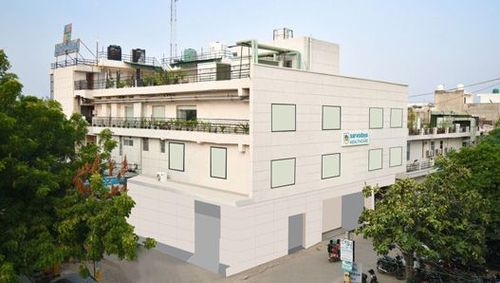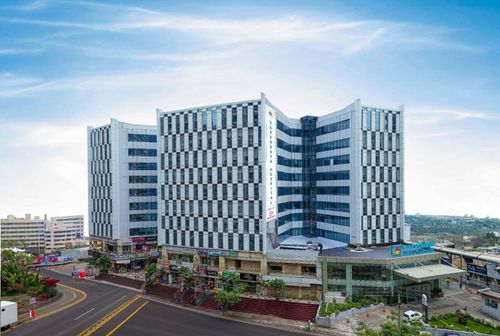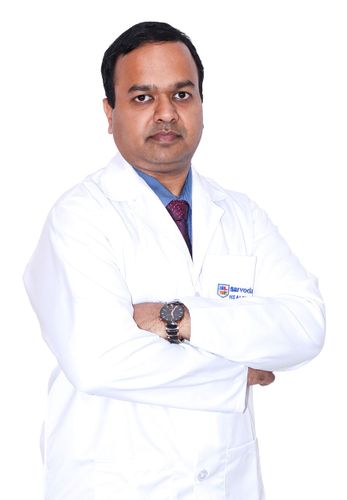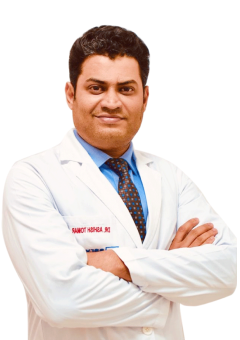Overview
The cervical spine supports the head, enables movement, and protects the spinal cord—but when affected by conditions like disc herniation, arthritis, or cervical stenosis, it can severely impact daily life. Symptoms may include chronic neck pain, stiffness, headaches, or limb weakness.
At Sarvodaya, we offer comprehensive cervical spine treatment ranging from advanced imaging and physiotherapy to minimally invasive surgical procedures like anterior cervical discectomy, fusion, and artificial disc replacement. As a leading Spine Surgery Hospital in Faridabad, Delhi NCR, our expert spine team uses the latest techniques to ensure better outcomes and faster recovery.
Symptoms of Cervical Spine Disorders
- Neck pain and stiffness
- Headaches originating from the neck
- Limited range of neck motion
- Numbness or tingling in arms or hands
- Muscle weakness in shoulders, arms, or hands
- Pain that radiates to shoulders or arms
- Difficulty with coordination or balance
- Occasional dizziness or visual disturbances
Causes of Cervical Spine Disorders
- Age-related degeneration (Cervical Spondylosis)
- Herniated or slipped cervical disc
- Trauma or injury to the neck
- Poor posture or prolonged strain
- Spinal infections or tumours
- Congenital spine abnormalities
- Inflammatory diseases like rheumatoid arthritis
- Repetitive neck movements or overuse
Diagnosis of Cervical Spine Conditions
Accurate diagnosis is key to delivering effective treatment and preventing long-term neurological complications. At Sarvodaya, the best Spine Surgeon doctor in Delhi NCR uses advanced diagnostics and personalised planning to identify the root cause of spine disorders and ensure safe, precise treatment.
- Physical examination – Assesses neck flexibility, reflexes, strength, and neurological function.
- Patient history evaluation – Gathers details about symptom onset, severity, lifestyle habits, or prior injuries.
- X-rays – Help detect bone degeneration, misalignment, or cervical spondylosis.
- MRI scan – Offers detailed images of discs, spinal cord, and nerve roots to identify compression or soft tissue damage.
- CT scan – Provides high-resolution bone structure assessment, useful for surgical planning.
- Electromyography (EMG) – Measures muscle activity and detects nerve root compression.
- Nerve conduction studies– Evaluate how effectively electrical signals pass through cervical nerves
Prevention & Lifestyle Modification
Simple changes in daily habits can help protect your cervical spine and reduce the risk of chronic neck pain. At Sarvodaya, a trusted Spine Surgery Hospital in Faridabad, Delhi NCR, our specialists guide patients on prevention strategies tailored to their lifestyle.
- Maintain good posture while sitting, standing, and using mobile or digital devices.
- Use ergonomic furniture that promotes natural neck and spine alignment.
- Take frequent breaks during long periods of desk work or screen use.
- Practice neck and shoulder stretches to stay flexible and relieve stiffness.
- Strengthen neck and upper back muscles through physiotherapy or light resistance exercises.
- Avoid carrying heavy bags on one shoulder, which may strain cervical muscles.
- Sleep on a supportive pillow that maintains a neutral neck position.
- Stay active and maintain a healthy weight to minimise stress on the cervical spine
Pre- & Post-Surgery Modifications
Pre-Treatment Guidelines
- Avoid strenuous neck movements and heavy lifting before surgery
- Follow physiotherapy or pain management protocols as prescribed
- Report any worsening of symptoms like numbness or weakness promptly
- Maintain a healthy diet and stay hydrated to support healing
- Stop smoking and alcohol consumption, as advised by your doctor
Post-Treatment Care
- Wear a neck brace or collar support as directed by the spine specialist
- Follow rehabilitation and physiotherapy plans regularly
- Avoid sudden neck movements and high-impact activities during recovery
- Sleep in a comfortable position with proper head and neck support
- Attend follow-up visits and report any signs of infection or discomfort


